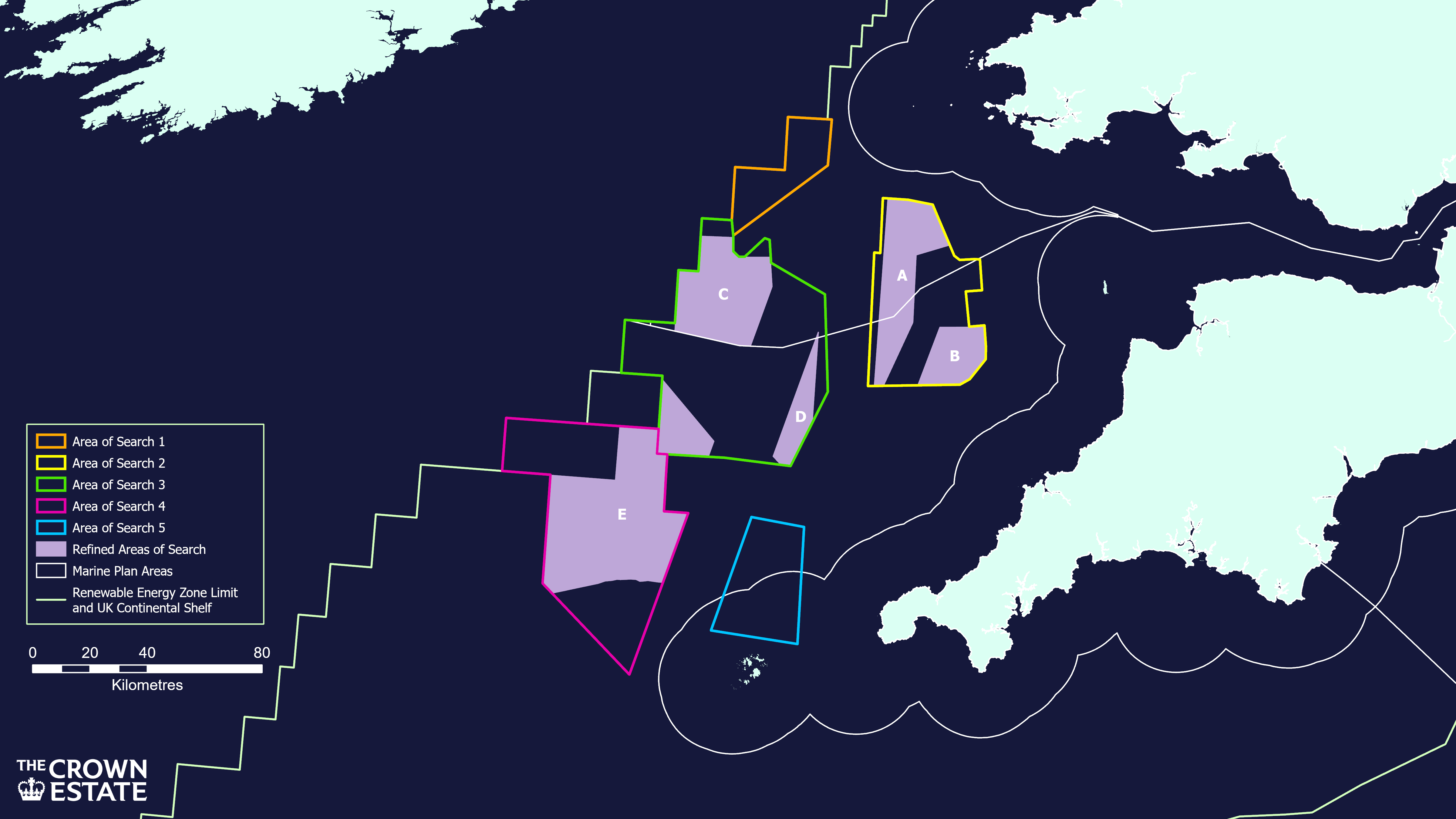Britain’s independent body defining zones for new floating wind farms in the near-Atlantic off Wales’ coastline is accelerating the process leading up to the government’s issuance of leases.
The Crown Estate today announced it is speeding up oceanographic surveys in the Celtic Sea, with a view to the Westminster government’s acceptance of bids in the second half of next year.
In July the commercial body identified outline blocks between Cornwall and southern Ireland, eligible for leases. The length of the concessions will be specified before next year’s bidding round.
Beyond a starting 4GW of generating capacity to be secured by 2035, a gargantuan 24 GWp is envisaged for ten years later, all secured with floating turbines.
Contracts have now been signed for the first phase of the new studies, set to begin in the spring and yielding greater detail on wind, wave and current patterns.
Further studies soon to follow will encompass studies of affected marine life and sea-bed seismology. Parameters of the commercial advisor’s research will be kept under review as the programme progresses.
Whitehall anticipates accepting licencing bids for the Celtic Sea next year.
Providing successful bidders with easy access to definitive, new data will, the Crown Estate hopes, speed up the development process, and remove the need for developers to conduct their own surveys.
The Crown Estate is developing its information-sharing approach for floating turbines in the Celtic Sea in talks with key stakeholders, including industry, potential suppliers and governments in Westminster and Cardiff.
Two months ago the body told developers pre-consent surveys such as outlined today would lie at the heart of streamlining floating wind in the Celtic Sea. Further updates will follow in 2023’s first six months of 2023, ahead of the official launch of the leasing tender.
Nicola Clay heads the Crown Estate’s new ventures unit: She said: “A successful floating wind market in the Celtic Sea will support the UK’s journey to Net Zero and strengthen our energy security. It can also be the catalyst for new jobs, investment and supply chain opportunities.
“Ensuring these benefits are fully realised is a shared challenge, and The Crown Estate is committed to playing its part in supporting the growth of these important markets”, Clay added.
Tim Pick, co-chair of the Offshore Wind Acceleration Taskforce welcomed the prospect of awarding of survey contracts at an early stage.
He added: “The prospect of floating offshore wind in the Celtic Sea is taking shape, with The Crown Estate working with government and industry to progress the leasing process and stimulate a sustainable approach to the supply chain





Good news that Crown Estates are at last taking action to facilitate off-shore energy, but this needs to include floating tidal energy harvesting, for which there is a massive potential around the UK coastline, especially off southern Wales, the Bristol Channel and Devon. Tidal power runs 24/7 throughout the year unlike wind power, so is baseline electricity production. This is not estuary barriers that are expensive and impact the local ecology, but floating water turbines that can be mass produced and towed to site. Visit the European Marine Energy Centre: see https://www.emec.org.uk/ and have a look at Orbital Marine that have 2MW floating turbines; see: https://www.orbitalmarine.com/